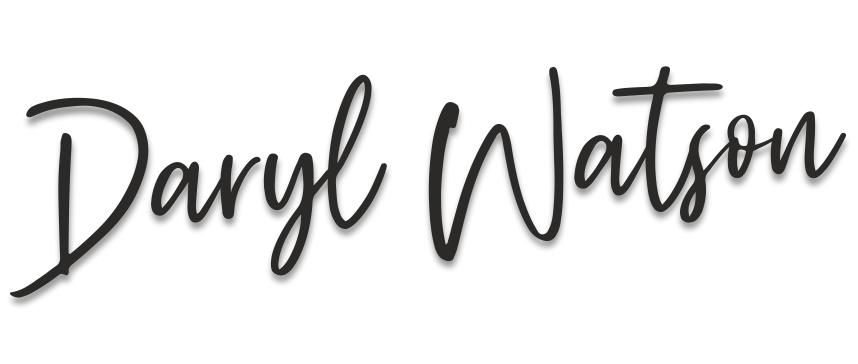Are you asking the right question?
 Some professionals like doctors, lawyers and journalists are taught how to ask great questions as part of their training. In my own professional career through sales and coaching, I have found it equally important to be able to formulate and ask the right question. Questions aid performance, close sales, help provide inspiration and direction, they even help to build trust and rapport. It is a useful skill to be able to ask great questions.
Some professionals like doctors, lawyers and journalists are taught how to ask great questions as part of their training. In my own professional career through sales and coaching, I have found it equally important to be able to formulate and ask the right question. Questions aid performance, close sales, help provide inspiration and direction, they even help to build trust and rapport. It is a useful skill to be able to ask great questions.Looking & Learning
“Daryl, I love your object lessons!” said a course participant. “Many years ago you had me construct a periscope, and I’ve never forgotten the principle of lifting my vision.”
You can find lessons for life in everyday items and activities by simply looking around. As you consider your audience, reflect upon the things you do and observe each day. Your surroundings can come alive with answers to help you teach.
Consider using a simple object as a metaphor or an analogy to help connect the learning.
Some of my favourite objects include – Ear plugs, spectacles, a compass, tuning forks, light bulbs, a torch, wool, stabilisers, tools, batteries, eggs, juggling balls, spinning plates, bread, kitchen utensils, remote controls, razors, periscopes – the list is endless! Look around and use your imagination.
Many years ago, my father taught me the power of observation. Sat in the garden he watched and marveled at the industry and work rate of tiny ants. A few days later he shared those observations in a remarkable speech. I have never forgotten the lessons about work, industry and service. I find through small and simple things the most powerful lessons are learned.
What are some of your favourite object lessons?
Don’t interfere!
A recent experience reminded me that as a leadership coach, one of the greatest lessons I ever learned was that the best leaders have sense enough to pick good people to do what needs to be done. But more importantly, they also have self-restraint enough to stop themselves from meddling with them, while they do it!
My invitation today is a gentle reminder to all of us – to stop meddling! Instead, remember to trust others and simply let them get on with it!
Remember – leadership is a lifelong learning process.
Council Together
I am grateful for the many opportunities to council together with friends, colleagues and especially family members this last year.
There have been many challenges to address over the last few months and as I look to the year ahead, I am certain there will be many more.
Meeting together as a family council, we set technologies aside, we listen to one another, we discuss concerns, we make plans, set goals, we support and strengthen one another. Jointly, we search for solutions to the problems of the day. When open and candid conversation is filled with love, patience, kindness and respect for the opinions of each other, the council has always been a success.
In addition, when each member of the family is invited to contribute to the discussion, they can and do feel part of any decision reached. In turn, this leads to positive reinforcement of their own feelings and supports our family to move forward in a unified manner, as we each take ownership of the issue.
Whether it is around the family dinner table, the work canteen table, or the board room table, the principles of sitting in council together are universal.
Why not give it a go today? Focus on an issue and ask – What can we do about it? What are your ideas?
What pulls you?
In my coaching conversations, regularly I find that individuals feel 𝒑𝒖𝒔𝒉𝒆𝒅 into something rather than feeling 𝒑𝒖𝒍𝒍𝒆𝒅 by it.
One of the greatest lessons in life is to find something that 𝒑𝒖𝒍𝒍𝒔 you! If we are open and willing to learn, life has a way of teaching us by 𝒑𝒖𝒍𝒍𝒊𝒏𝒈 us towards something.
When you keeping 𝒑𝒖𝒔𝒉𝒊𝒏𝒈 yourself to do something, oftentimes it feels like something you have to do and then it can become tiresome. You can only 𝒑𝒖𝒔𝒉 yourself for so long before you give up. But when you’re 𝒑𝒖𝒍𝒍𝒆𝒅 by something, attracted by it even, it feels like something you get to do and you tend to become even more passionate about it.
I am 𝒑𝒖𝒍𝒍𝒆𝒅 by coaching, personal development and learning – I love it! Frequently, I’ll share my insights and discoveries about what I learn with others, to hopefully inspire and help them achieve more.
In life we learn what is most important by finding something that 𝒑𝒖𝒍𝒍𝒔 us towards it – this is where we should focus our energies.
Oftentimes the most profound insights are really the simplest.
𝑷𝒖𝒔𝒉 𝒗 𝑷𝒖𝒍𝒍
Consider what 𝒑𝒖𝒍𝒍𝒔 you. Therein your purpose awaits!
Travelling the Road of Life
The King’s Highway
The Finishing Line
 At the end of the day, a lone traveller crossed the finish line and wearily walked over to the king. He was tired and dirty – but he addressed the king with great respect, and handed him a bag of gold. He explained, “I stopped along the way to clear away a pile of rocks and debris that was blocking the road. This bag of gold was under it, and I would like you to help me return it to its rightful owner.” The King replied, “You are the rightful owner.” The traveller replied, “Oh no, this is not mine. I’ve never known so much money.” “Oh yes,” said the king, “you’ve earned this gold, for you have won my contest. He who travels the road best is he who makes the road smoother for those who will follow”… Author Unknown.
At the end of the day, a lone traveller crossed the finish line and wearily walked over to the king. He was tired and dirty – but he addressed the king with great respect, and handed him a bag of gold. He explained, “I stopped along the way to clear away a pile of rocks and debris that was blocking the road. This bag of gold was under it, and I would like you to help me return it to its rightful owner.” The King replied, “You are the rightful owner.” The traveller replied, “Oh no, this is not mine. I’ve never known so much money.” “Oh yes,” said the king, “you’ve earned this gold, for you have won my contest. He who travels the road best is he who makes the road smoother for those who will follow”… Author Unknown.What holds your team together?
Evidence in the garden suggested the storm had been a rough one.
There was damage in the garden, including one of the ceramic pots which had been blown over and was broken into several pieces. My wife and I discussed our options. We determined to visit our local garden centre to purchase a replacement. However, we couldn’t settle on a new pot and instead a little later we decided to repair the broken pot and bought some glue instead. A few days later, the pot, showing its age a little, plus with some wear and tear, was repaired and functional once more, adding to the surroundings of the garden.
In a like manner, it struck me how powerful cohesion is and the importance of glue in many aspects of life, especially through this year. I considered my family, teams I’ve worked in through my career, then subsequently groups and organisations I have worked with in 2020. What is the glue, the cohesion, the bond that unites us, that keeps us sticking together and from falling apart? In life, we can choose – out with the old, in with the new or repair.
Unity, love, purpose, meaning, joy, happiness, a sense of belonging are all indicators of cohesive teams.
In your family, community, teams and organisations what is the glue that holds you together?
Generosity
When you think of a generous person, who first comes to mind?
Generosity – “a willingness to give help or support, especially more than is usual or expected.”
Who has inspired you the most to greater generosity?
I’d like to think that it won’t be some famous celebrities or philanthropists, rather it’ll be a family member, a friend, someone in the community, or a co-worker perhaps. “You can’t live a perfect day without doing something for someone who will never be able to repay you.” said Debbie Macomber.
One by One. Act by Act. Service by Service. Little by Little. Each of us can make a difference.
I am encouraged by the words of the Dalai Lama who said – “Generosity is the most natural outward expression of an inner attitude of compassion and loving-kindness.”
We simply don’t talk about generosity enough. We desperately need more men and women in society at large to look around, to look beyond themselves and consider the needs of others. To become more selfless, outward looking, to give more, to be more compassionate and much, much more generous.
Some will think it airy-fairy. Yet, it is a powerful, personal, potent, peace giving potion.
What can you do, who will you help today?
Gratitude
Some years ago, the District of Columbia police auctioned off about 100 unclaimed bicycles as told by Thomas S. Monson.
““One dollar,” said an 11-year-old boy as the bidding opened on the first bike. The bidding, however, went much higher. “One dollar,” the boy repeated hopefully each time another bike came up. The auctioneer, who’d been auctioning stolen or lost bikes for 43 years, noticed that the boy’s hopes seemed to soar higher whenever a racer-type bicycle was put up. Then there was just one racer left. The bidding went to eight dollars. “Sold to that boy over there for nine dollars!” said the auctioneer. He took eight dollars from his own pocket and asked the boy for his dollar. The youngster turned it over in pennies, nickels, dimes, and quarters—took his bike, and started to leave. But he went only a few feet. Carefully parking his new possession, he went back, gratefully threw his arms around the auctioneer’s neck, and cried.”
Gratitude creates the most wonderful feeling. It can resolve disputes and it will strengthen friendships.
I believe saying thank you is the mark of a cultivated mind. It will change others hearts and they’ll respond differently than they have before. Funnily enough, you’ll be happier too!
Think to thank – today!
